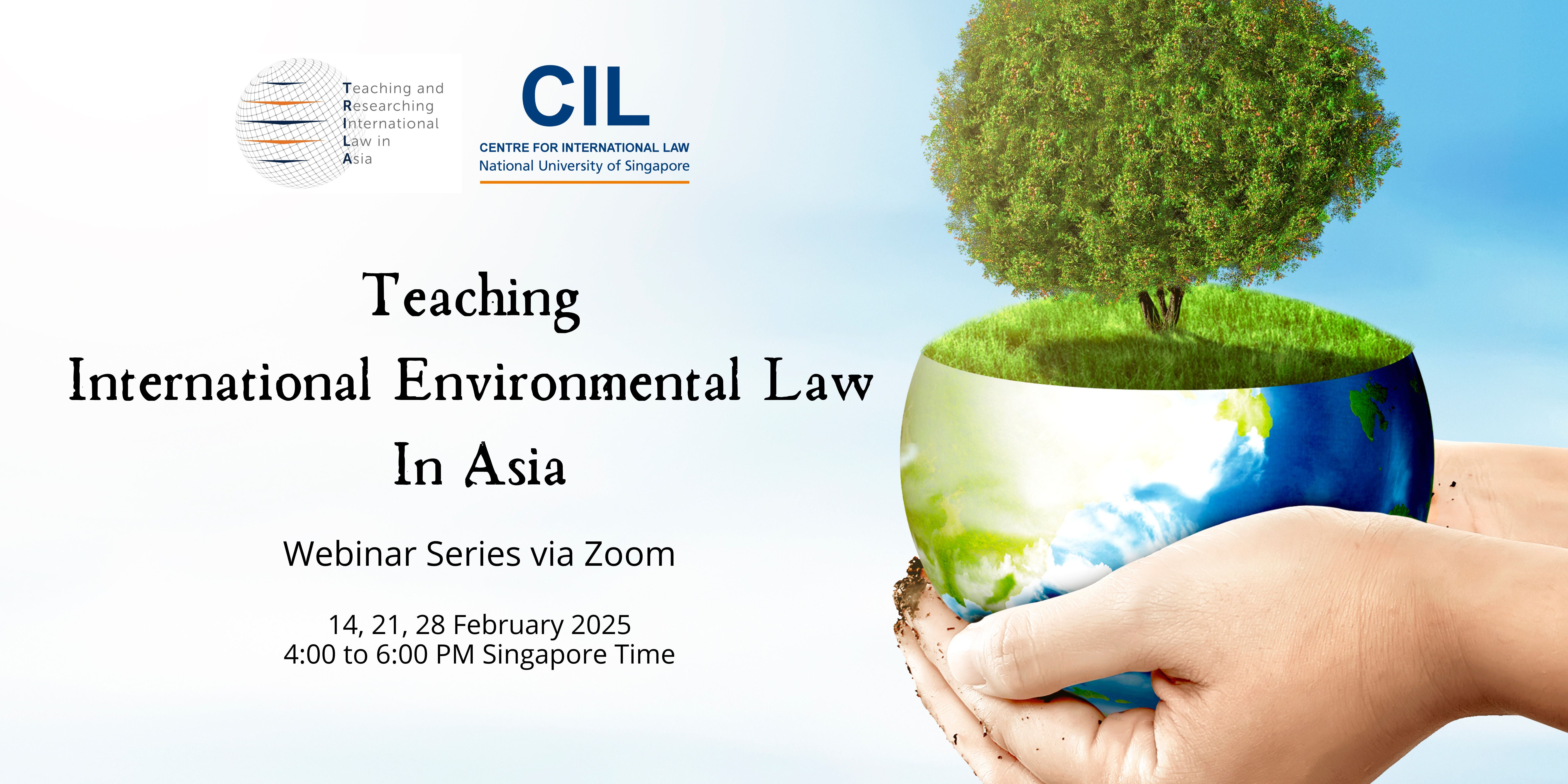Venue
Start
End
Time

Background
How should we study and teach International Environmental Law in the Asian region? In the first place, what is the meaning of the word ‘environment’? Has our understanding of the ‘environment’ changed over time, and how does international law reflect these changes? And what is this corpus called ‘International Environmental Law’? How does this body of law relate to other areas of international law? What contributions have Asian states made to the rich and evolving field of International Environmental Law? These are some of the many fundamental questions that are raised when we explore and begin to understand how international law has developed a framework for cooperation to deal with global environmental problems. The whole body of International Environmental Law itself keeps evolving in normative and institutional sense. Environmental principles and measures transform as we deal with environmental problems that transcend borders, such as the issues concerning climate change, pollution, and biodiversity loss. These environmental challenges, including water management issues, deforestation and land degradation, affect Asian countries in a unique way and thus, undermine regional growth and stability. Moreover, many of these environmental issues interact with issues that are governed by other fields of international law, such as International Human Rights Law, Law of the Sea, International Economic Law, among others. Therefore, as International Environmental Law itself expands, teachers of this course have to deal with several challenges, such as identifying what their main objectives are in teaching this course, what texts and materials they should use in class, what teaching techniques and technologies that they deem effective for their students, and many other issues.
The NUS Centre for International Law, TRILA Team is delighted to organise this Webinar Series on Teaching International Environmental Law in Asia (‘TRILA International Environmental Law’), which will be held via Zoom on 14, 21, 28 February 2025, from 4:00PM to 6:00 PM Singapore Time.
Programme
Please refer to the draft programme at the side panel. The programme will be updated and finalised as the webinar approaches.
Registration
Registration is free and by selection only. To enable a greater degree of engagement between the speakers and the participants, the maximum number of participants shall be limited.
The webinar is intended for teachers of International Environmental Law and Public International Law in general. Researchers, students (postgraduate level - Master’s and PhD), and practitioners on environmental law and international law are also welcome to apply. Priority will be given to those who have participated in previous TRILA events.
Applicants must register their interest through the online form below.
Deadline of registration is on 31 January 2025. Successful applicants will be informed via e-mail on or before 05 February 2025.
Format of the Discussion
To replicate as closely as possible the intimate setting of an in-person workshop, the format will be a Zoom Meeting. Thus, participants are required to have their cameras on throughout.
The webinar will be interactive. Participants will have the opportunity to exchange ideas with the Speakers, and ask questions or raise comments through their cameras and microphones.
Inquiries
Should you have any questions, please send an email to the TRILA Team (ciltrila@gmail.com).
Registration is closed as of 31 Jan 2025, 1.45pm, Singapore Time

